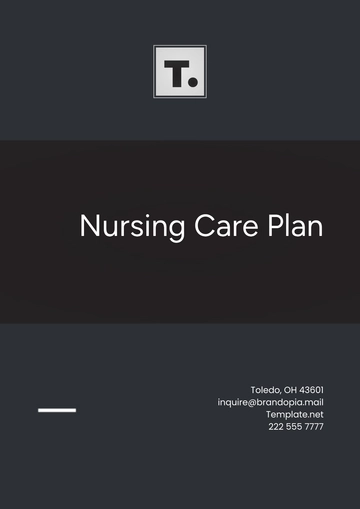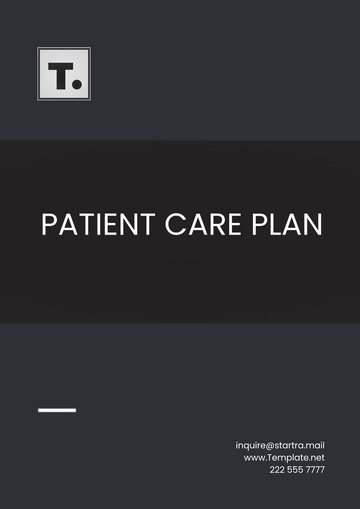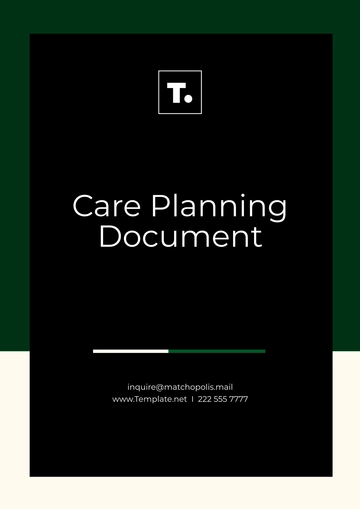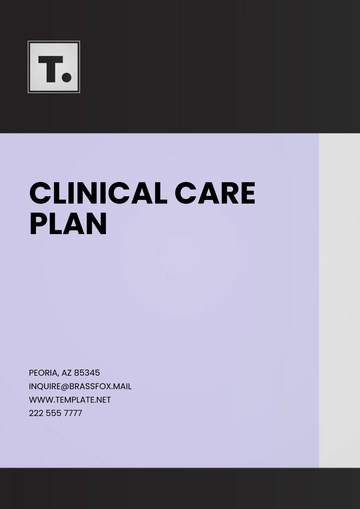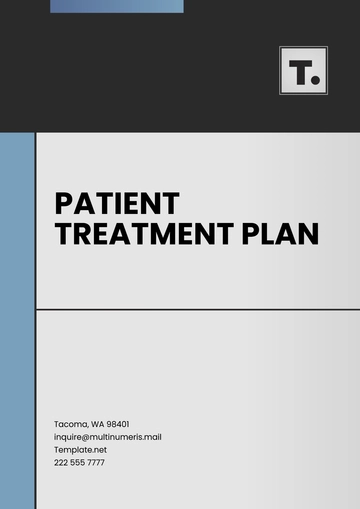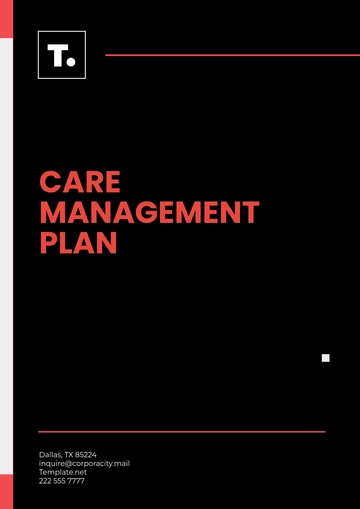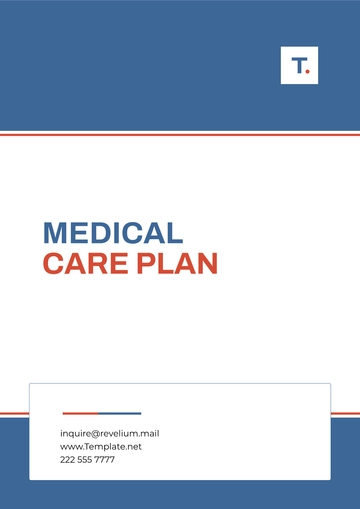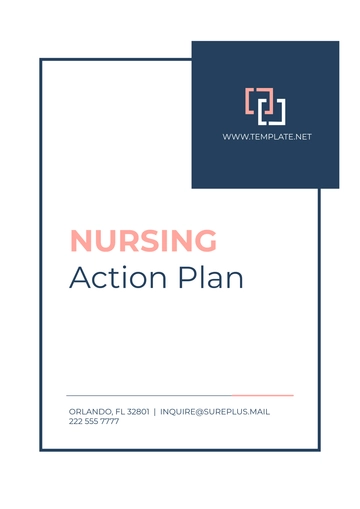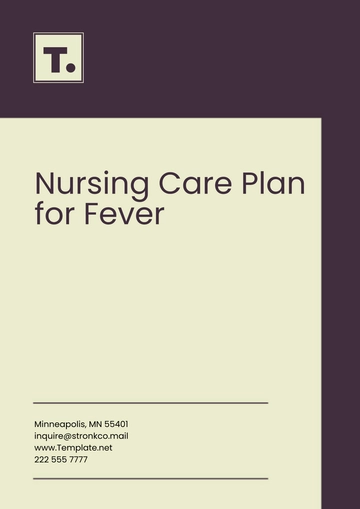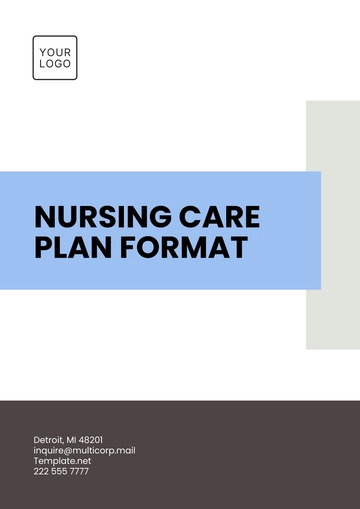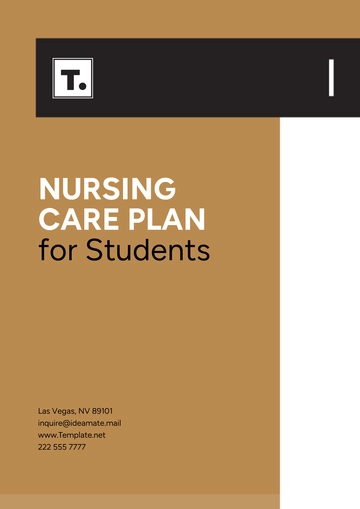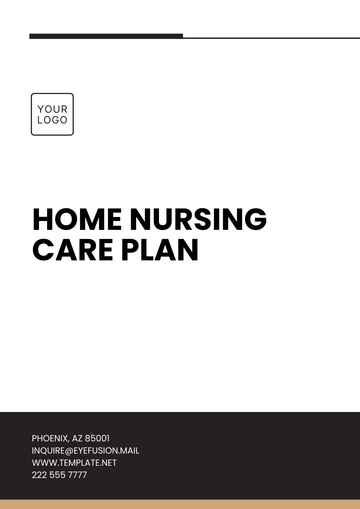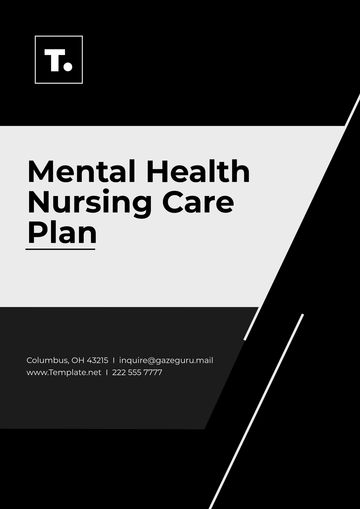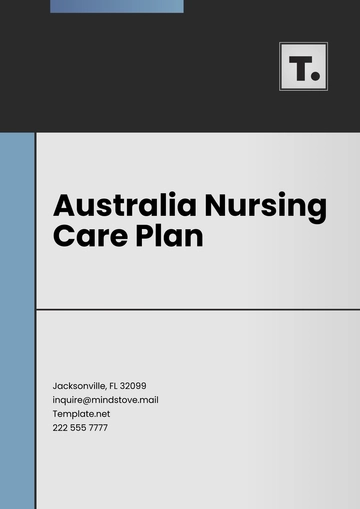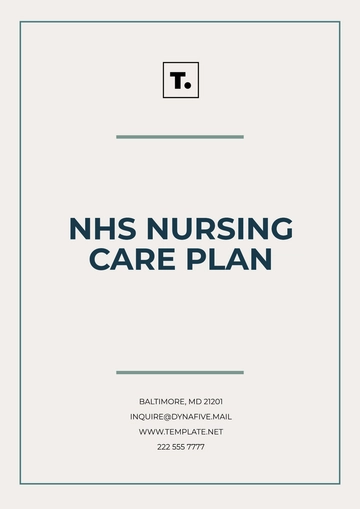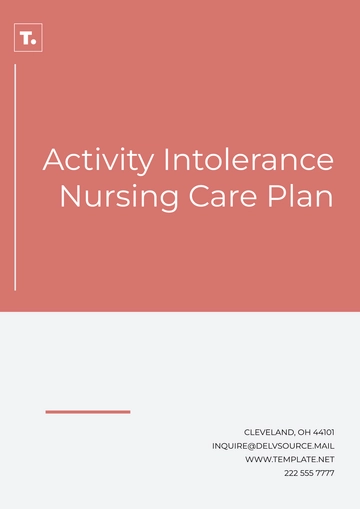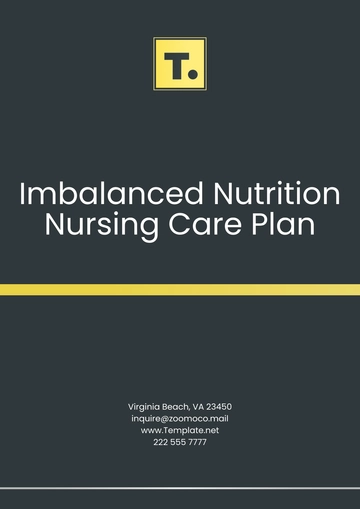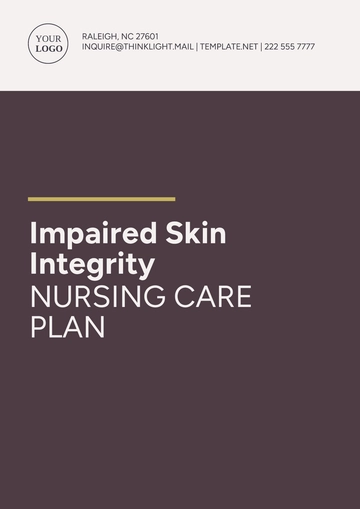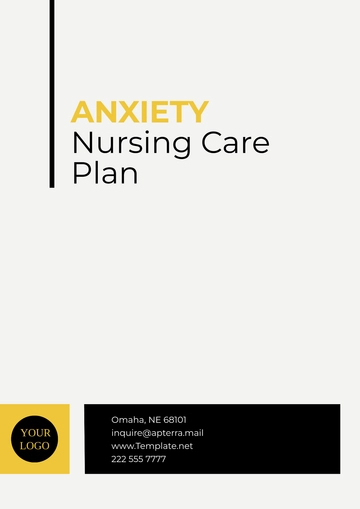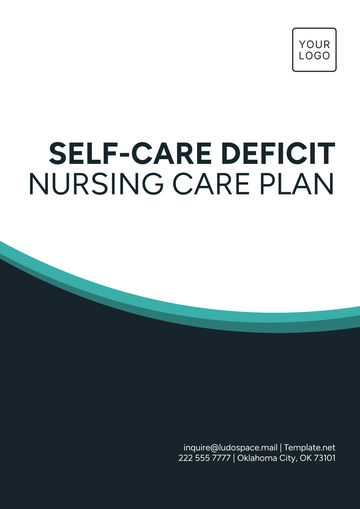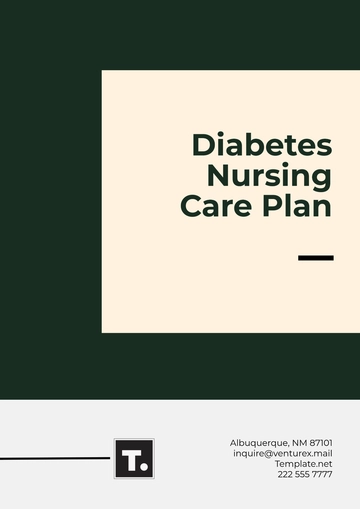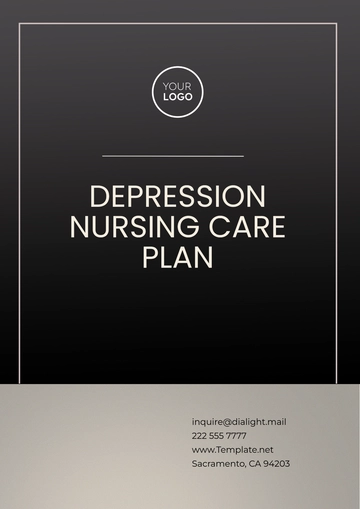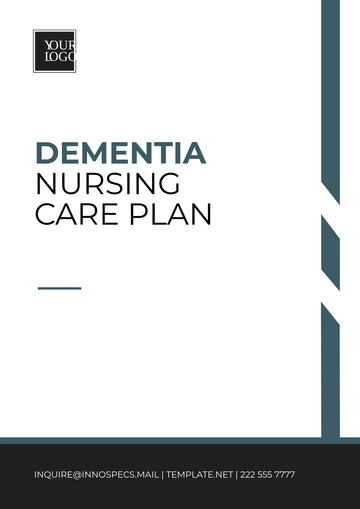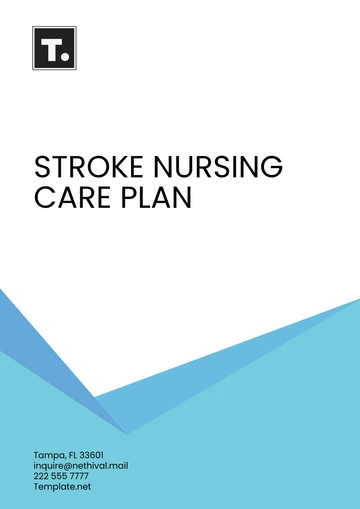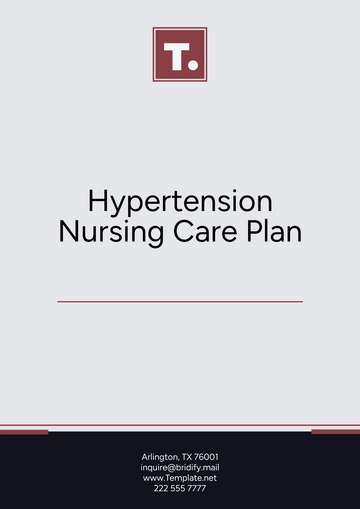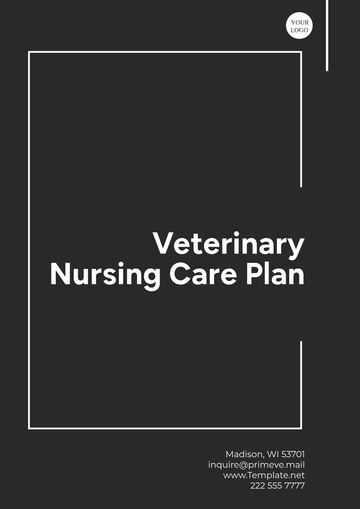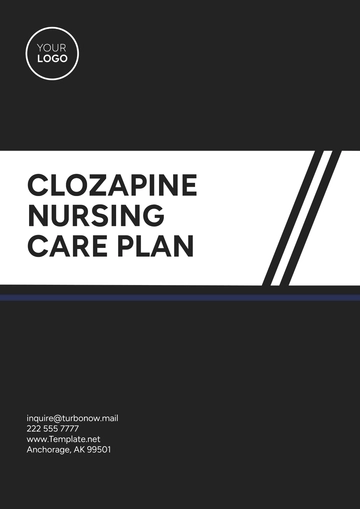Free Oncology Nursing Care Plan
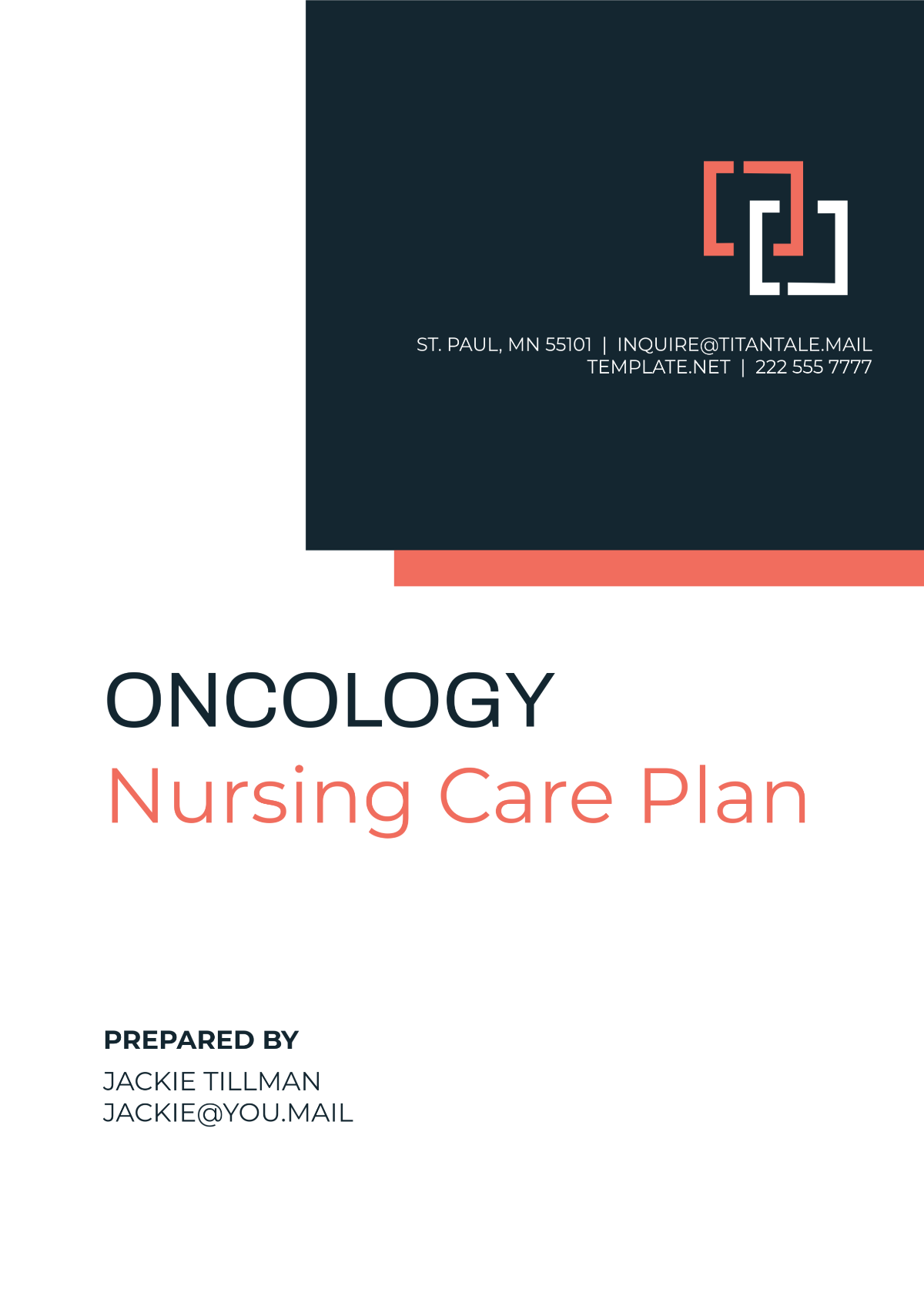
Prepared by: [YOUR NAME]
Email: [YOUR EMAIL]
Patient Information
Patient Name: Charley Stokes
Age: 58
Diagnosis: Non-Small Cell Lung Cancer (Stage IV)
Treatment Plan: Chemotherapy (Cisplatin, Paclitaxel), Radiation Therapy
Admission Date: January 15, 2050
Primary Oncologist: Dr. Malvina Jones, MD
Nursing Diagnosis & Care Plan Goals
Nursing Diagnosis | Goal | Interventions | Evaluation Criteria |
|---|---|---|---|
Pain Related to Tumor Progression | Patient will report a decrease in pain severity to a level of 3/10 or less within 1 week. | - Administer prescribed pain medication as per the schedule. | - Patient reports pain at or below the target level of 3/10. |
- Educate patient on proper pain management techniques. | - Improved patient comfort and satisfaction with pain control. | ||
Risk for Infection Related to Chemotherapy | Patient will maintain an absence of infection throughout chemotherapy treatment. | - Monitor vital signs, including temperature, daily. | - No signs of infection (fever, chills, increased WBC count). |
- Administer prescribed antibiotics as needed. | - Clear lab results with WBC count within normal range. | ||
Fatigue Related to Chemotherapy and Radiation | Patient will report improved energy levels and ability to perform daily activities. | - Encourage rest periods and balance with light activity. | - Patient reports increased energy and ability to engage in ADLs. |
- Provide nutritional support (e.g., high-protein snacks) to combat fatigue. | - Improved quality of life as measured by daily activity levels. | ||
Anxiety Related to Cancer Diagnosis and Prognosis | Patient will verbalize coping strategies and express decreased anxiety. | - Provide emotional support and allow patient to express concerns. | - Decreased anxiety, as measured by reduced score on anxiety scale (e.g., GAD-7). |
- Offer referral for counseling or support groups for emotional well-being. | - Patient reports feeling more at ease with diagnosis. | ||
Altered Nutrition (Nausea, Anorexia) | Patient will maintain adequate nutrition during treatment and report improved appetite. | - Administer antiemetic medications as prescribed before chemotherapy. | - Weight maintained or improved; adequate food intake. |
- Educate patient on small, frequent meals with nutrient-dense foods. | - Patient consumes at least 50% of daily calorie goal. |
Interventions & Rationale
Intervention | Rationale | Frequency/ Duration | Expected Outcome |
|---|---|---|---|
Administer pain medication as prescribed (opioids) | Pain relief is necessary to enhance comfort and allow the patient to engage in daily activities. | Every 4 hours PRN, as per medication orders. | Pain level maintained at or below 3/10. |
Monitor for signs of infection (fever, chills) | Early detection of infection helps prevent complications in an immunocompromised patient. | Daily, with daily temperature checks. | No signs of infection (fever, chills, abnormal lab results). |
Encourage fluid intake and small meals | Proper hydration and nutrition are key for maintaining energy levels and supporting the immune system. | Continuous, with regular check-ins. | Adequate hydration and nutrition maintained. |
Provide emotional support and listen to concerns | Emotional support can help reduce anxiety and allow patients to better cope with cancer treatment. | Ongoing, during each nursing visit. | Decreased anxiety and improved coping mechanisms. |
Referral for counseling services | Professional counseling can assist in processing emotional challenges and improve overall well-being. | As needed. | Improved psychological well-being as reported by patient. |
Patient Education
Topic | Information Provided | Date | Patient Response |
|---|---|---|---|
Pain Management | Educated on the use of pain medication and non-pharmacological methods (e.g., relaxation techniques). | January 16, 2050 | Patient expressed understanding. |
Infection Prevention | Informed on hand hygiene, signs of infection, and when to seek medical assistance. | January 16, 2050 | Patient verbalized comprehension. |
Nutritional Support | Discussed high-protein foods and importance of small, frequent meals to combat fatigue and nausea. | January 16, 2050 | Patient agreed to try small meals. |
Emotional Well-being | Provided information about counseling services and support groups for cancer patients. | January 17, 2050 | Patient expressed interest in joining a support group. |
Discharge Plan
Discharge Date: February 10, 2050
Follow-up Appointments:
Oncologist: February 15, 2050
Palliative Care: February 20, 2050
Medications on Discharge:
Cisplatin (chemotherapy): As prescribed.
Pain Medication (Opioids): As needed for pain control.
Instructions:
Continue prescribed chemotherapy and radiation treatments as planned.
Attend all follow-up appointments to monitor progress and adjust care as needed.
Seek immediate medical help if signs of infection, severe pain, or adverse side effects occur.
- 100% Customizable, free editor
- Access 1 Million+ Templates, photo’s & graphics
- Download or share as a template
- Click and replace photos, graphics, text, backgrounds
- Resize, crop, AI write & more
- Access advanced editor
The Oncology Nursing Care Plan Template from Template.net provides a customizable and editable solution for healthcare professionals. Tailored for oncology care, this template helps streamline patient management, offering clear, actionable steps. With the AI Editor Tool, users can effortlessly adjust the plan to suit individual needs, ensuring efficient, personalized care for oncology patients.
You may also like
- Finance Plan
- Construction Plan
- Sales Plan
- Development Plan
- Career Plan
- Budget Plan
- HR Plan
- Education Plan
- Transition Plan
- Work Plan
- Training Plan
- Communication Plan
- Operation Plan
- Health And Safety Plan
- Strategy Plan
- Professional Development Plan
- Advertising Plan
- Risk Management Plan
- Restaurant Plan
- School Plan
- Nursing Home Patient Care Plan
- Nursing Care Plan
- Plan Event
- Startup Plan
- Social Media Plan
- Staffing Plan
- Annual Plan
- Content Plan
- Payment Plan
- Implementation Plan
- Hotel Plan
- Workout Plan
- Accounting Plan
- Campaign Plan
- Essay Plan
- 30 60 90 Day Plan
- Research Plan
- Recruitment Plan
- 90 Day Plan
- Quarterly Plan
- Emergency Plan
- 5 Year Plan
- Gym Plan
- Personal Plan
- IT and Software Plan
- Treatment Plan
- Real Estate Plan
- Law Firm Plan
- Healthcare Plan
- Improvement Plan
- Media Plan
- 5 Year Business Plan
- Learning Plan
- Marketing Campaign Plan
- Travel Agency Plan
- Cleaning Services Plan
- Interior Design Plan
- Performance Plan
- PR Plan
- Birth Plan
- Life Plan
- SEO Plan
- Disaster Recovery Plan
- Continuity Plan
- Launch Plan
- Legal Plan
- Behavior Plan
- Performance Improvement Plan
- Salon Plan
- Security Plan
- Security Management Plan
- Employee Development Plan
- Quality Plan
- Service Improvement Plan
- Growth Plan
- Incident Response Plan
- Basketball Plan
- Emergency Action Plan
- Product Launch Plan
- Spa Plan
- Employee Training Plan
- Data Analysis Plan
- Employee Action Plan
- Territory Plan
- Audit Plan
- Classroom Plan
- Activity Plan
- Parenting Plan
- Care Plan
- Project Execution Plan
- Exercise Plan
- Internship Plan
- Software Development Plan
- Continuous Improvement Plan
- Leave Plan
- 90 Day Sales Plan
- Advertising Agency Plan
- Employee Transition Plan
- Smart Action Plan
- Workplace Safety Plan
- Behavior Change Plan
- Contingency Plan
- Continuity of Operations Plan
- Health Plan
- Quality Control Plan
- Self Plan
- Sports Development Plan
- Change Management Plan
- Ecommerce Plan
- Personal Financial Plan
- Process Improvement Plan
- 30-60-90 Day Sales Plan
- Crisis Management Plan
- Engagement Plan
- Execution Plan
- Pandemic Plan
- Quality Assurance Plan
- Service Continuity Plan
- Agile Project Plan
- Fundraising Plan
- Job Transition Plan
- Asset Maintenance Plan
- Maintenance Plan
- Software Test Plan
- Staff Training and Development Plan
- 3 Year Plan
- Brand Activation Plan
- Release Plan
- Resource Plan
- Risk Mitigation Plan
- Teacher Plan
- 30 60 90 Day Plan for New Manager
- Food Safety Plan
- Food Truck Plan
- Hiring Plan
- Quality Management Plan
- Wellness Plan
- Behavior Intervention Plan
- Bonus Plan
- Investment Plan
- Maternity Leave Plan
- Pandemic Response Plan
- Succession Planning
- Coaching Plan
- Configuration Management Plan
- Remote Work Plan
- Self Care Plan
- Teaching Plan
- 100-Day Plan
- HACCP Plan
- Student Plan
- Sustainability Plan
- 30 60 90 Day Plan for Interview
- Access Plan
- Site Specific Safety Plan
